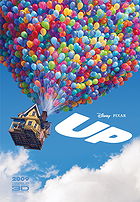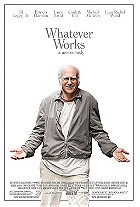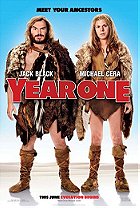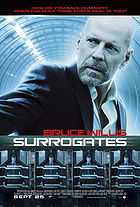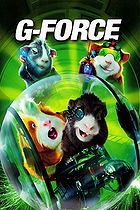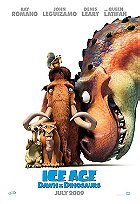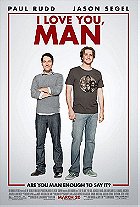Riding in on the four horses currently plaguing the horror-thriller genre - stylised gore, crude neon lighting, whiplash editing, and compulsive script turnarounds - Horsemen is a strictly by-the-numbers chiller courtesy of Michael Bay's Platinum Dunes production company. If nothing else, Horsemen (alternately known as The Horsemen in some circles) proves that Platinum Dunes is capable of more than just screwing up remakes of classic horror films (such as Friday the 13th and The Texas Chainsaw Massacre) - they're equally adept at ruining original (I use the term loosely) ideas too. In a nutshell, this film plays out like a half-hearted amalgam of about a dozen other (superior) genre films (like Se7en, Saw, Silence of the Lambs, etc) that's composed with an eye towards merging C.S.I. aesthetics with the single-father domestic troubles of a family sitcom. Admittedly, Horsemen begins well enough, but it isn't long before the film derails itself with a one-way trip to Crapsville.
The protagonist of the film is Detective Aidan Breslin (Quaid). He's a single father with two boys, but their relationship has been strained due to the untimely death of the mother of the family. (If you guessed that Breslin has avoided dealing with both his wife's passing and his grieving children by throwing himself into his work - and looking dishevelled in the process - you can give yourself a screenwriting credit.) The main narrative thread of the film concerns a string of brutal murders, and the investigation that's being carried out by Detective Breslin. It's a big case, yet Breslin has next to no help, which only makes the already contrived plot seem even dumber. Anyway, Breslin uncovers something startling during his investigation: the killers have taken inspiration from the biblical Four Horsemen of the Apocalypse, and are committing thematically appropriate murders.
Music video director Jonas Åkerlund makes his feature film debut here, and assembles a dynamic aura of panic for Horsemen that, at least for the first 40 minutes, is fairly gripping. The atmosphere is incredibly effective; promising that the film has something shocking up its sleeve that'll separate it from other entries to the tiresome serial killer genre. Alas, Horsemen has no unique plans in mind, and (with very few exceptions) this thriller is devoid of both thrills and compelling suspense. The plot, initially so promising, inevitably succumbs to formula. For the most part, the killers reveal themselves at seemingly random moments to provide a cheap, short-lived shock. The lazy script (written by Dave Callaham...who was also responsible for Doom) attempts to create shocks out of not who the killers are, but how they are revealed. Alas, this objective can be considered failed. Contrivances are another issue - for instance one character appears to turn themselves in for no apparent reason beyond "the script told me to". Most detrimentally, what aims to be a climactic twist is foreseeable from around the film's midpoint. Thus, this is a mystery-thriller with no real build, no climax and no mystery.
Without spoiling too much, the "mastermind" behind the murders decided to kill people simply because of a personal problem many of us have faced. Certainly, it isn't an easy issue to deal with, but gutting innocents is hardly the most effective way to handle it. Furthermore, an audience is actually asked to feel sympathy for the guilty party! It's preposterous. The main killer delivers a cliché-ridden speech towards the film's dénouement, telling Breslin "If you had done this, none of this would have happened". This reviewer thinks differently - this reviewer believes that if the killer had just controlled their murderous impulses despite their hurt feelings, no killings would've happened. On top of all this malarkey, Horsemen carries the appearance of a second-guessed film - subplots seem condensed; there are loose ends; character introductions are short-changed; and psychological strands are cut in half. The original runtime was reportedly about 20 minutes longer than the final cut (not to mention the film went through significant reshoots), so perhaps a number of things were lost in translation. It seems even the distributor knew they had a turkey on their hands - Lionsgate quarantined the film's release to less than 100 theatres in early March 2009 where it scooped up about a million dollars, and then shuffled off to DVD.
To be fair, director Jonas Åkerlund's work isn't too bad. It's just a shame he was saddled with such a damn stupid script. As a result, Horsemen comes off as a B-Grade rehash of a lot classic serial killer movies. The picture looks good, but still simplistic and elementary compared to, say, Se7en. Åkerlund is no David Fincher, and no matter how you look at it, this movie is a lesser version of Se7en - especially in terms of visual appeal, storytelling and above all suspense. Unfortunately, too, the movie is let down by the inclusion of some slipshod filmmaking (for instance bad continuity between close-ups and wide shots). Jan A.P. Kaczmarek's score also merits a mention; it fulfils its function, though it's nothing remarkable.
On the acting front, Dennis Quaid gives it his all, but he's hamstrung by the Frankenstein's monster of a script. Zhang Ziyi (who's given 15 minutes of screen-time despite top billing) is particularly awful - one can only assume her inclusion was to help the film sell in international markets. It's painful to watch Zhang regurgitate the dialogue she was given, but not as painful as the scenes she shares with Quaid in which the actors commit 100% to the material despite the fact that it's utter trash.
All in all, Horsemen works on a very basic level and it's admittedly watchable, but it's ultimately nothing we haven't seen done before and done better - a very simple mental dissection after viewing will cause the film to crumble into pieces.
4.4/10
 Login
Login
 Home
Home 183 Lists
183 Lists 1670 Reviews
1670 Reviews Collections
Collections
 0 comments,
0 comments, 